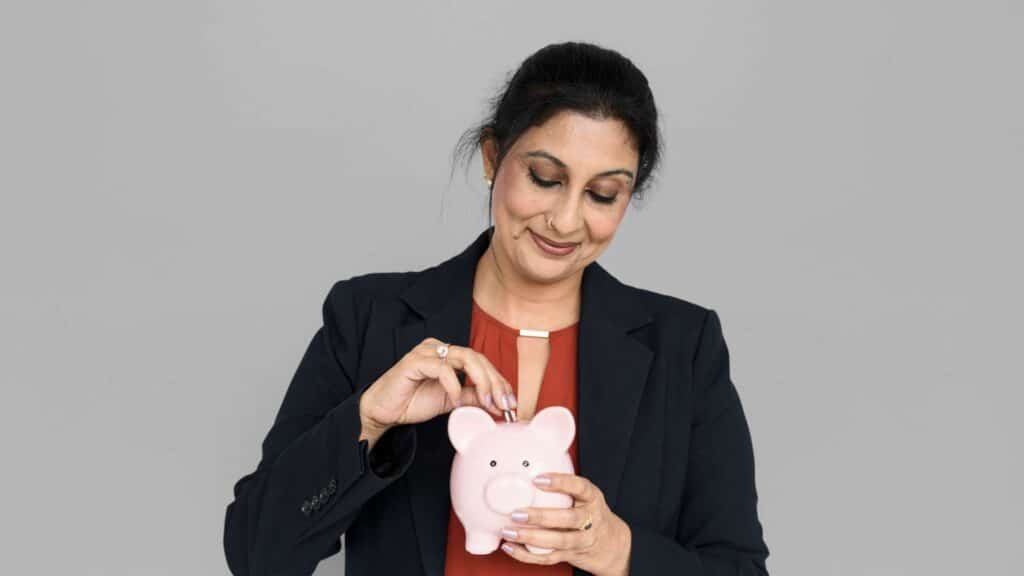Table of Contents
An emergency fund is vital to financial stability, offering a safety net for unexpected expenses and helping avoid high-interest debt. Financial emergencies—such as medical issues, job loss, or major repairs—can strain finances and increase stress, particularly for those without savings. Studies have indicated that your emergency fund should be a minimum of $35,000. Such funds allow for better control over sudden costs, reducing reliance on credit and promoting peace of mind. Let’s delve into why is it important to have an emergency fund.
Why Is It Important to Have An Emergency Fund
Think of your emergency fund as a shock absorber for your car or motorcycle. How would your commutes look if every shock on the road were transmitted to you? A lot more bumpy and nasty! Why is it important to have an emergency fund? So that you secure your finances and your sanity.
What Are Emergency Funds
An emergency fund is a specific savings account dedicated to covering unexpected expenses. Unlike general savings, this fund is exclusively reserved for genuine emergencies, such as sudden medical bills, urgent repairs, or a temporary loss of income. Establishing an emergency fund involves calculating necessary monthly expenses and setting a savings goal of three to six months’ worth. This amount provides adequate coverage for most common emergencies.
Emergency funds are best kept in a high-yield savings account separate from daily-use accounts to discourage impulsive spending. High-yield accounts offer easy access to your money while allowing it to grow through interest.
Benefits of an Emergency Fund
Having an emergency fund offers several advantages that contribute to overall financial health and stability. Some of its major benefits are:
- Financial Security: With funds saved for emergencies, you’re protected against financial upheavals and can address urgent costs without stress.
- Peace of Mind: Emergency savings ease the mental burden of “what if” scenarios, knowing you’re prepared for the unexpected.
- Debt Prevention: You reduce debt accumulation during financial strain by relying on savings instead of high-interest loans or credit.
- Increased Resilience: Emergency funds allow for greater flexibility, whether handling a sudden job change or facing unplanned expenses. Establishing a dedicated emergency fund gives you financial control and confidence that your immediate needs are covered.
Protecting Against Unexpected Expenses
One of the most significant advantages of an emergency fund is protection from unexpected expenses. Emergencies such as car repairs, home maintenance, or sudden medical needs are often unavoidable and can disrupt budgets. These expenses might lead to accumulating debt or skipping essential payments without savings.
However, you can cover these costs immediately with an emergency fund and get back on track without compromising long-term financial goals. Emergency funds help maintain economic stability by providing instant access to the resources you need, regardless of what life throws your way.
Reducing Financial Stress
An emergency fund reduces financial stress by offering a reliable source of cash to cover unplanned expenses and prevent financial shock. Knowing you’re prepared for the unknown, you’re less likely to be anxious about situations beyond your control.
An emergency fund also helps eliminate the stress of seeking loans or borrowing funds to manage unexpected situations. Your peace of mind extends beyond finances, contributing to better mental and emotional well-being. Financial stability becomes a source of strength, providing clarity and calm even in challenging times.

Avoiding High-Interest Debt
Emergency funds are a practical alternative to high-interest debt, which many people turn to during financial emergencies. Without an emergency fund, unexpected expenses often lead to reliance on credit cards or payday loans, which carry high interest rates that compound financial burdens.
Savings allow you to avoid additional costs associated with interest, making economic recovery more manageable. An emergency fund keeps your expenses in control by eliminating the need to rely on costly debt. It maintains your credit score, allowing you to focus on building your savings rather than paying off loans.
Building Financial Resilience
Financial resilience is the ability to withstand and adapt to economic disruptions, and an emergency fund is a critical component. This fund offers a foundation of stability, helping you to bounce back from challenging times with minimal financial strain. Building resilience means having a cushion that covers temporary income loss, like job transitions or freelancing gaps.
Over time, resilience improves financial habits, making saving and budgeting second nature. An emergency fund fosters a sense of preparedness, turning potential crises into manageable situations, benefiting your finances, and enhancing your overall financial well-being.
How Beem Can Help You Access Emergency Funds
Beem is a financial app designed to simplify your savings journey and streamline access to emergency funds:
- With Beem, users can set specific savings goals, automate contributions, and track progress with intuitive tools, making building an emergency fund seamless.
- The app also enables direct deposits from paychecks into your emergency account, ensuring consistent growth without manual transfers.
- Additionally, Beem offers round-up features that allow users to save small amounts from daily transactions, helping them reach their targets faster.
With an emergency fund managed through Beem, you’re assured of instant access when needed, allowing for quick action in times of financial stress.
Conclusion
Creating an emergency fund is essential for managing financial disruptions with confidence and reducing reliance on high-interest debt. With careful planning, building a solid reserve that enhances financial resilience and promotes peace of mind is possible.
For convenience, apps like Beem offer tools to automate savings, track goals, and access funds easily. Beem’s BFF Budget Planner™ enables users to spend, save, plan, and protect their money like an expert with on-point financial insights and recommendations. By managing your emergency fund through Beem, you gain greater control over your finances, ensuring you’re prepared for any challenges that come your way. Download the app here.
FAQs for Why Is It Important to Have an Emergency Fund
Why is it important to have an emergency fund?
An emergency fund is essential for handling unexpected expenses, like medical bills or sudden repairs, without relying on debt. It provides financial stability and peace of mind, helping you navigate emergencies while protecting your long-term financial goals.
How much should I save in an emergency fund?
A good rule of thumb is to save three to six months’ worth of essential living expenses. Setting aside six months’ expenses for those with unpredictable income, such as freelancers, can offer more comprehensive coverage and security.
What are the benefits of an emergency fund?
An emergency fund shields you from high-interest debt, provides financial resilience, and reduces stress in emergencies. It lets you handle unplanned expenses directly, preserving financial stability and enabling faster recovery from unexpected financial setbacks.
How can an emergency fund reduce financial stress?
An emergency fund prepares you for sudden costs, reducing the need to borrow or tap into regular funds. Knowing you’re financially prepared for the unexpected offers peace of mind and mitigates stress about financial uncertainties.
How can Beem help me create an emergency fund?
Beem offers tools to automate savings, set goals, and track progress, making it easy to build an emergency fund over time. Features like direct deposit and round-up savings encourage consistent growth and fast access when emergencies arise.















































